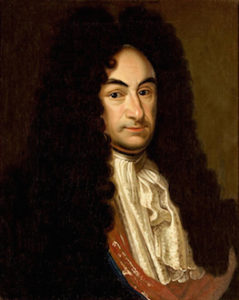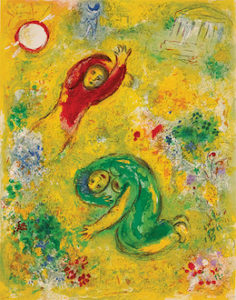Pagine
Iscriviti alla Newsletter
 invio in corso...
invio in corso...Condividi e segnala
Tag
- Althusser
- Antropologia
- Baumgarten
- Bourdieu
- Conceivability of Nothingness
- Conciliation
- corpo
- Derrida
- Dialectics
- Difference
- distinzione
- Europe
- Expression
- giudizio
- Grace
- Habitus
- Heidegger
- Hobbes
- Kant
- linguaggio
- Lyotard
- marxismo
- Medieval Aristotelianism
- Metaphysics
- Nature
- Negative
- Nichts
- nihil
- Nihilism
- nihil negativum
- nihil privativum
- Non-identical
- Nothing
- Nothingness
- onore
- politica
- postmoderno
- pratica
- riconoscimento
- Smith
- solitudine
- Sovranità
- Spinoza
- Thomas Aquinas
- Western Ontology
-
Articoli recenti
Link
Archivi categoria: Monografica
L’amicizia hegeliana come «lasciar essere»: dalla negazione astratta dell’alterità al riconoscimento di sé

Roberto Finelli
Università Roma Tre
roberto.finelli@uniromatre.it
Abstract: Negation can be conceived of as the “metacategory” of Hegelian philosophy. An inquiry into its manifold and polysemous functions is essential to try to elucidate and to loose the complexities of Hegel’s dialectic. In the first part, this paper aims at showing how, through the three sections oft the Science of Logic the meaning and the function of Negation change in connection with the changing role of Otherness. The Author also argues that the Doctrine of the Concept displays structures and categories that are endowed with an ethical … Continua a leggere
Pubblicato in Monografica, NUMERO 3
Lascia un commento
Agalmata, Deontology, and the Erotics of Emptiness in the Symposium

C.D.C. Reeve
University of North Carolina at Chapel Hill
cdcreeve@email.unc.edu
Abstract: An integrated interpretation of (1) the Alcibiades episode in Plato’s Symposium that bases its skepticism about his reliability as a narrator on the evidence provided by the text itself, especially its use of the terms agalmata, exaiphnês, and epi dexia; (2) Socrates’ claim that he an expert on ta erôtika; and (3) Diotima’s account of the ergon of love as tokos en kalô[i], that uncovers some concealed deontological elements in Platonic ethics.
Keywords: Alcibiades, Socrates, eros, agalmata, … Continua a leggere
Pubblicato in Monografica, NUMERO 3
Lascia un commento
Platon. L’amitié civique et les deux formes du communisme

Arnaud Macé
Université de Bourgogne Franche-Comté
amace@univ-fcomte.fr
Abstract: Plato describes the constitution of the Republic as faithful to the saying according to which « among friends, everything is common » and he also calls friends the citizens of the Laws. The present paper suggests that the nature of the community implied in the idea of political friendship in Plato is manifold and that it should be understood in the light of the two forms of the common known in Archaic and Classical greek thought: the exclusive common, i.e. a common ressource to be set … Continua a leggere
Pubblicato in Monografica, NUMERO 3
Lascia un commento
Le tre amicizie di Aristotele

Diego Zucca
Università di Sassari
dizucca@uniss.it
Abstract: In this paper I present and discuss the Aristotelian theory of friendship. I mainly focus on the philosophical core of the theory, especially on the idea that there are three types of friendship (one based on the good, one based on the useful, one based on the pleasant). In presenting and discussing the theory: a) I concentrate on Aristotle’s method of inquiry, namely, on his attempt to do justice of phainomena (such as common behaviours, shared and notable opinions, ordinary intuitions, linguistic ascriptive practices) through a rational … Continua a leggere
Pubblicato in Monografica, NUMERO 3
Lascia un commento
Amicizia e filosofia in Epicuro

Aldo Brancacci
Università di Roma Tor Vergata
aldobrancacci@yahoo.it
Abstract: According to Epicurus, natural and necessary pleasures – the only ones that Epicurus admits – are those that look to happiness (eudaimonia), physical well-being (aokhlesia), and life itself. The desire for philosophy is the natural and necessary desire which looks to happiness. Philosophy, insofar as it frees us from ambitions, from the desire for power, for wealth, for fame, changes human beings and creates a “new man”, so to speak. This great transformation makes it possibile to establish this entirely different kind … Continua a leggere
Pubblicato in Monografica, NUMERO 3
Lascia un commento
L’amitié dans la pensée du millénaire médiéval: tableaux d’une exposition

Bénédicte Sère
Université de Paris Nanterre
benedicte.sere@sfr.fr
Abstract: Friendship – as represented by emotions and affects – is the essential relationship on which mediaeval society is based, and the concept of friendship is ubiquitous in Medieval Thought. During the Middle Ages – which lasted for a thousand years – friendship always played a fundamental role in shaping social and political relations. This is the reason why medieval philosophers as well as princes and politicians – men of science as well as men of power – all showed a genuine interest in describing friendship’s features. A … Continua a leggere
Pubblicato in Monografica, NUMERO 3
Lascia un commento
L’amicizia nel Principe

Annalisa Ceron
Università degli studi di Milano (Dipartimento di Filosofia)
annalisa.ceron@unimi.it
Abstract: This article sheds light on Machiavelli’s view of friendship as a political relationship. As the comparison between Platina’s De Principe and Machiavelli’s The Prince makes clear, the political anthropology, the political ontology and the vision of the world on which Machiavelli realistic idea of politics hinges imply that neither the relationship between a prince and his subjects nor that between the prince and his chosen advisers can be conceived as a form of friendship. What is at stake is not only a new … Continua a leggere
Pubblicato in Monografica, NUMERO 3
Lascia un commento
L’amicizia in Montaigne: autonomia, mescolamento, confraternita

Raffaele Carbone
Università di Napoli Federico II
raffaele.carbone@unina.it
Abstract: In this article, I put forward a particular reading of the chapter “De l’amitié” from Montaigne’s Essais, which also draws upon other chapters with which it can be compared. Having dealt with the well-known question of the relationship between Montaigne and La Boétie, I go on to highlight those aspects which characterize the Montaignian model of perfect friendship compared with the paradigms of the ancient world, particularly that of Aristotle. I draw particular attention to the features of autonomy (as opposed to “heteronomous” friendships, the purpose … Continua a leggere
Pubblicato in Monografica, NUMERO 3
Lascia un commento
Spinoza: amicizia e concordia. Corrispondenze senecane e specificità politiche

Marta Libertà De Bastiani
Università Roma Tre / ENS Lyon
martalibertadebastiani@gmail.com
Abstract: This paper examines the multi-faceted nature of friendship, conceived by Spinoza as a linking concept between reason and passions, as well as a linking concept between individual behavior and politics. If friendship indicates a certain form of agreement between human beings, its precise features and outcomes vary to a large extent. In fact, friendship may be a rational and natural agreement which takes place between people who live according to reason and which resembles Seneca’s conception of true friendship, … Continua a leggere
Pubblicato in Monografica, NUMERO 3
Lascia un commento
Leibniz: note sull’amicizia

Mariannina Failla
Università Roma Tre
mariannina.failla@uniroma3.it
Abstract: The article aims to describe the several meanings of friendship by Leibniz; starting from the convinction that the person is the root of friendship, Leibniz distinguishes between person and “brutus” while laying the foundations for an interesting philosophy of mind. Cognition (vision of universal), will and memory continuously interact in that frame. Friendship also leads to a specific political vision of civil society, based on relations of reciprocity (legal category of equity). The legal meaning and moral aspects of friendship emerge from the analysis of the three types … Continua a leggere
Pubblicato in Monografica, NUMERO 3
Lascia un commento
L’amitié selon Rousseau, de l’expérience douloureuse au projet politique

Géraldine Lepan
Université Toulouse Jean Jaurès / IHRIM (Cerphi)
geraldine.lepan@orange.fr
Abstract: This article aims at shedding light on Rousseau’s twofold conception of friendship, as a singular and «true» relation on the one hand, and as civic friendship on the other hand. As regards the first point, the paper analyzes Rousseau’s frequent comparison between love and friendship, as well as the preeminence he assigns tot he latter. often compares love with friendship and gives prominence in this last. Friendship is a product of our natural impulses. The ideal represented by friendship also allows to measure truth … Continua a leggere
Pubblicato in Monografica, NUMERO 3
Lascia un commento
Hegel e l’amicizia: presenza/assenza di un concetto

Sabina Tortorella
Université Paris II – Panthéon Assas
sabina.tortorella@gmail.com
Abstract: The article starts by noticing that the topic of friendship is never directly discussed in the main Hegelian works and aims at identifying the reasons for the lack of consideration for this topic. Claiming that Hegel cannot be conceived as a philosopher of friendship necessarily involves asking ourselves about the very meaning of this notion, through a previous survey of the ways in which it was depicted by Hegel’s contemporaries. Within an interpretation that opposes the modern concept of friendship to Aristotelian philia, the essay … Continua a leggere
Pubblicato in Monografica, NUMERO 3
Lascia un commento
